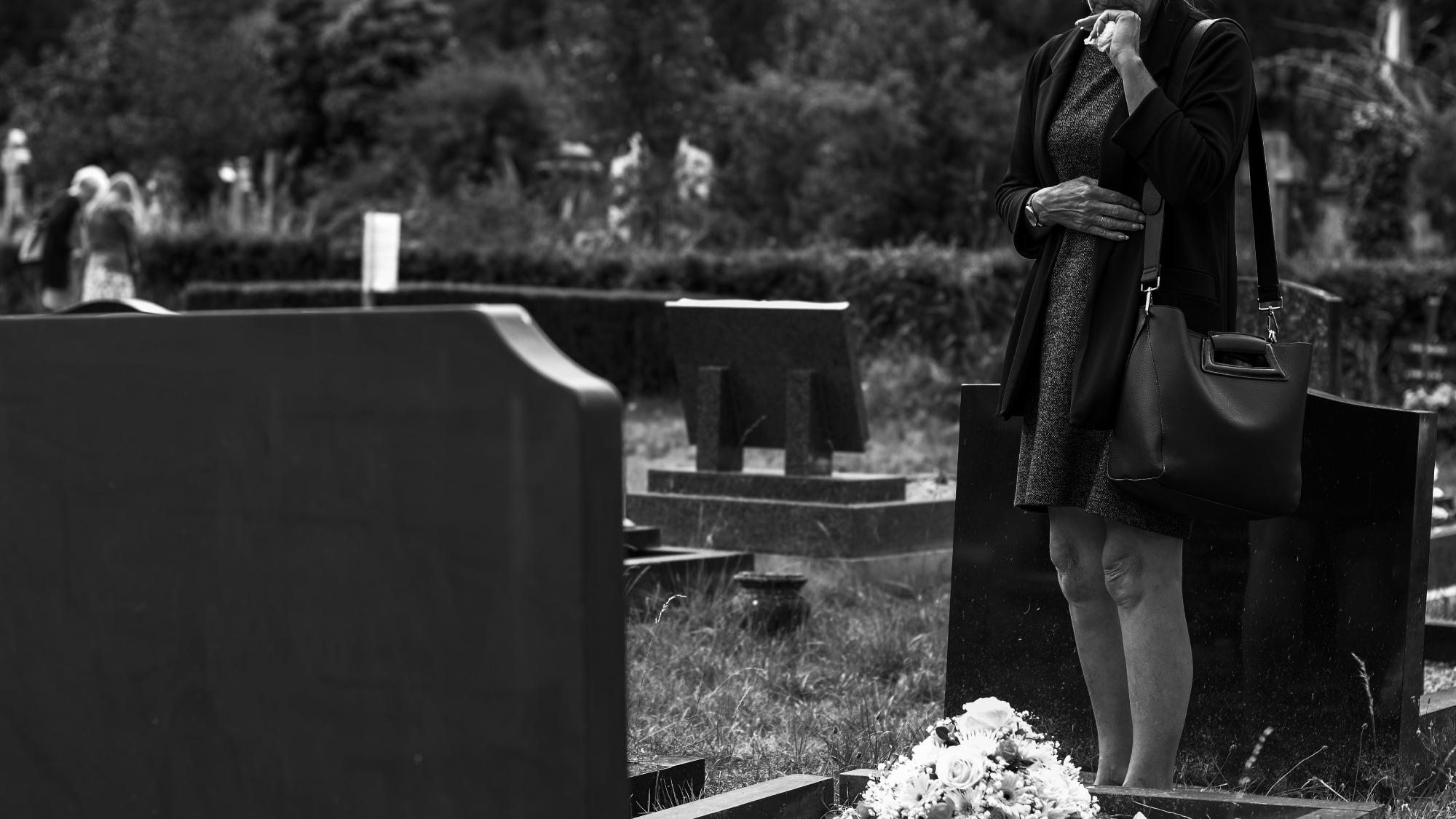Living with Loss – A Word of Consolation to the Ones Left Behind
Dr Noreen Chan,
Head & Senior Consultant, Division of Palliative Care,
National University Cancer Institute, Singapore (NCIS)
You can shed tears that she is gone,
or you can smile because she has lived.
You can close your eyes and pray that she’ll come back,
or you can open your eyes and see all she’s left.
Your heart can be empty because you can’t see her,
or you can be full of the love you shared.
You can turn your back on tomorrow and live yesterday,
or you can be happy for tomorrow because of yesterday.
You can remember her only that she is gone,
or you can cherish her memory and let it live on.
You can cry and close your mind,
be empty and turn your back.
Or you can do what she’d want:
smile, open your eyes, love and go on.
From “Remember Me” by David Harkins (1982)
As I write this, Singapore is mourning the death of one of her young sons, who lost his life in the line of duty. 28-year-old actor Aloysius Pang was seriously injured while on military reservist training in New Zealand and died a few days later. His funeral was held on 27 January 2019 but it will be far from over for his family and friends, the SAF and, judging by the social media buzz, anyone with an opinion on the matter.
To most of us, this would be another example of how fragile life can be, and the suddenness of the loss, the manner of it, can be as traumatic as the loss itself. No chance to say good byes, no opportunity to say anything at all.
Birth and death are universal human conditions, yet ironically, each of us will experience these phenomena, directly and indirectly, in our unique way. So we can never really say “I know how you feel”, because we do and we don’t, at the same time. Many of us, as we get older, will lose not only ageing parents but also contemporaries.
Recently, at the close of 2018, a classmate of mine died in a hospice and when the news circulated around our WhatsApp chat group, people started to reminisce about her and about others who had passed on at a young age. The youngest was a Primary 6 classmate, G. She broke her arm during basketball one day and ended up having her right arm amputated for bone cancer.
I remember telling my father about it, and in his typical blunt way – remember I was 11 years old – he told me it would spread to her lungs and she would die. I was furious with him, but of course he was proven right. Back in those days, there was effectively no
other treatment, and the disease was pretty much lethal. G managed to return to class for a while, but inevitably, she started skipping days, and eventually stopped coming.
Someone shared that she had spent many hours playing her favourite game “Othello” with G on the days that she was well enough to attend class, and her death continued to affect her even in secondary school. What I recalled was being told that the night before G died, she told her mother, “Don’t cry mummy, the angels are coming.”
As the stories above illustrate, the person does not have to be our relative for us to be affected by his or her death. And that effect can go on for months or even years; I can still picture G with her gentle nature and sunny smile, wearing the floral poncho her mum made to make the amputation less obvious.
First, a few definitions:
Grief is the response to loss, and has several dimensions – emotional of course, but also physical and cognitive.
Bereavement is the state of grieving and mourning that follows the death of a loved one, or any significant other (including pets).
Mourning refers to the rituals or expressions of loss e.g. funerals, memorials, wearing black etc. These rituals have important social signaling functions, announcing to the community that the family was in a state of adjusting to the new status quo.
I will not dwell on the theories or models of grief, nor on the process of grieving. Those who are interested to learn more can refer to the Singapore Hospice Council booklet “Caring For Yourself and Others After a Death“
What I will say, however, is that the impact can hit you like a sucker punch, even when you thought you were mentally prepared. For some, the loss is total, practically the end of the world, like W.H. Auden had written in “Funeral Blues”:
He was my North, my South, my East and West,
My working week and my Sunday rest,
My noon, my midnight, my talk, my song;
I thought that love would last forever: I was wrong.
The stars are not wanted now; put out every one,
Pack up the moon and dismantle the sun,
Pour away the ocean and sweep up the wood;
For nothing now can ever come to any good.

For others, the ultimate cruelty is that rest of the world just carries on, seemingly oblivious to the pain of the bereft:
“Lament” by Edna St Vincent Millay
Listen, children:
Your father is dead.
From his old coats
I’ll make you little jackets;
I’ll make you little trousers
From his old pants.
There’ll be in his pockets
Things he used to put there,
Keys and pennies
Covered with tobacco;
Dan shall have the pennies
To save in his bank;
Anne shall have the keys
To make a pretty noise with.
Life must go on,
And the dead be forgotten;
Life must go on,
Though good men die;
Anne, eat your breakfast;
Dan, take your medicine;
Life must go on;
I forget just why. Whatever it is, do not let anyone tell you that you will get over it. It is not a matter of “getting over” this, it is more of a process of “going through” it, eventually emerging changed, but hopefully more or less intact. It is important to
realise that everyone grieves differently, and these do not reflect differences in love and caring. And because it is a process, it will take time.
But don’t take my word for it. Renowned grief expert William Worden, in his book “Grief Counselling and Grief Therapy”, had suggested Four Tasks of Grieving. These are:
1) To accept the reality of the loss.
2) To work through the pain and grief.
3) To adjust to a changed life.
4) To “relocate the loss” i.e. maintain a connection with the deceased and move on with life.
Or, if you prefer, you can take the advice of the late American poet Mary Oliver (10 Sept 1935-17 Jan 2019):
“to live in this world
you must be able
to do three things
to love what is mortal;
to hold it
against your bones knowing
your own life depends on it;
and, when the time comes to let it go,
to let it go”
Resources:
http://singaporehospice.org.sg/bereavement
http://singaporehospice.org.sg/community-bereavement- service-providers

